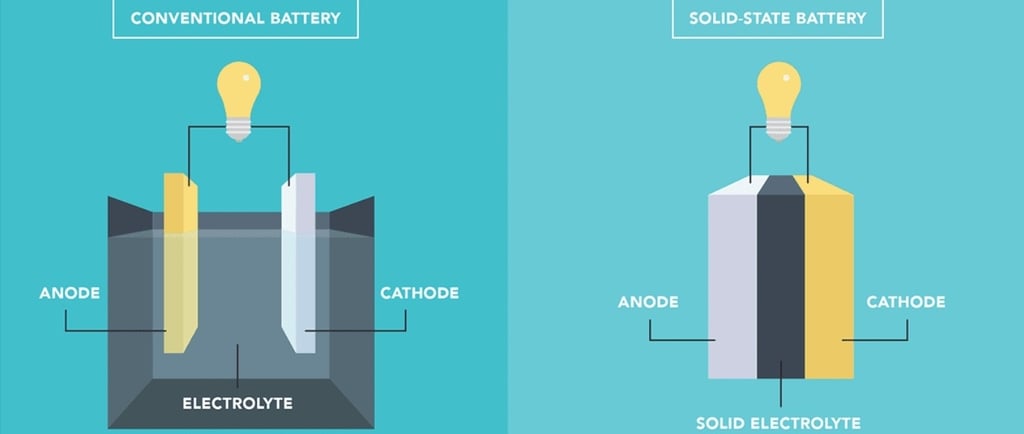Major Advances and Breakthroughs Batteries
9/23/2025


1. Solid-State Batteries Moving Closer to Reality
Volkswagen showed a vehicle powered by a solid-state lithium-metal battery (by QuantumScape & PowerCo). These promise higher energy density, faster charging, better safety, and longer lifespan.
Stellantis (working with Factorial) made progress: their solid-state battery “FEST” cells have ~375 Wh/kg energy density, can charge from 15% → 90% in just 18 minutes at room temperature, and work in a wide temperature range (‐30°C to +45°C).
2. Higher Energy Density & More Efficient Designs
ProLogium revealed their 4th-generation lithium ceramic battery (LCB) with a fully inorganic electrolyte, reaching ~380 Wh/kg energy density, and improvements in charge speed, low-temp performance, and safety.
Panasonic is developing a battery that omits the anode in manufacturing; instead the lithium-metal anode forms on first charging. This design can boost capacity by ~25%. A big push is to increase energy density.
3. Better Materials: Silicon, Composite, et
Silicon-dominant anodes with nanostructuring (e.g., sub-10 nm pores/particles) are showing stability over many cycles. One research got ~80% capacity retention after >400 cycles without special pre-treatment etc.
Sicona (Australian startup) licensed its silicon-composite anode material (SiCx) to an Indian firm, which improves energy density by ~20% and charging speeds by ~40%.
4. Sustainable & New Sources of Lithium / Extraction / Recycling
Element3 extracted battery-grade lithium carbonate from produced water (Permian Basin), achieving >85% recovery, low concentration feed, with plans for small-scale commercial production.
In India, scientists at CSMCRI developed a much faster, safer, more eco-friendly way to extract lithium from used battery black powder; got ~97% purity, doing in 1 hour versus the older 2-3 day processes.
5. Alternative Technologies and Chemistries
CATL (China) launched a new sodium-ion battery brand “Naxtra,” with energy density ~175 Wh/kg; sodium-ion uses cheaper, more abundant materials than lithium, and less safety/fire risk concerns
Also, foldable, eco-friendly aluminium-ion batteries have been developed (in Bengaluru, India) that maintain high durability (over 96% capacity after 150 cycles), even when bent.
